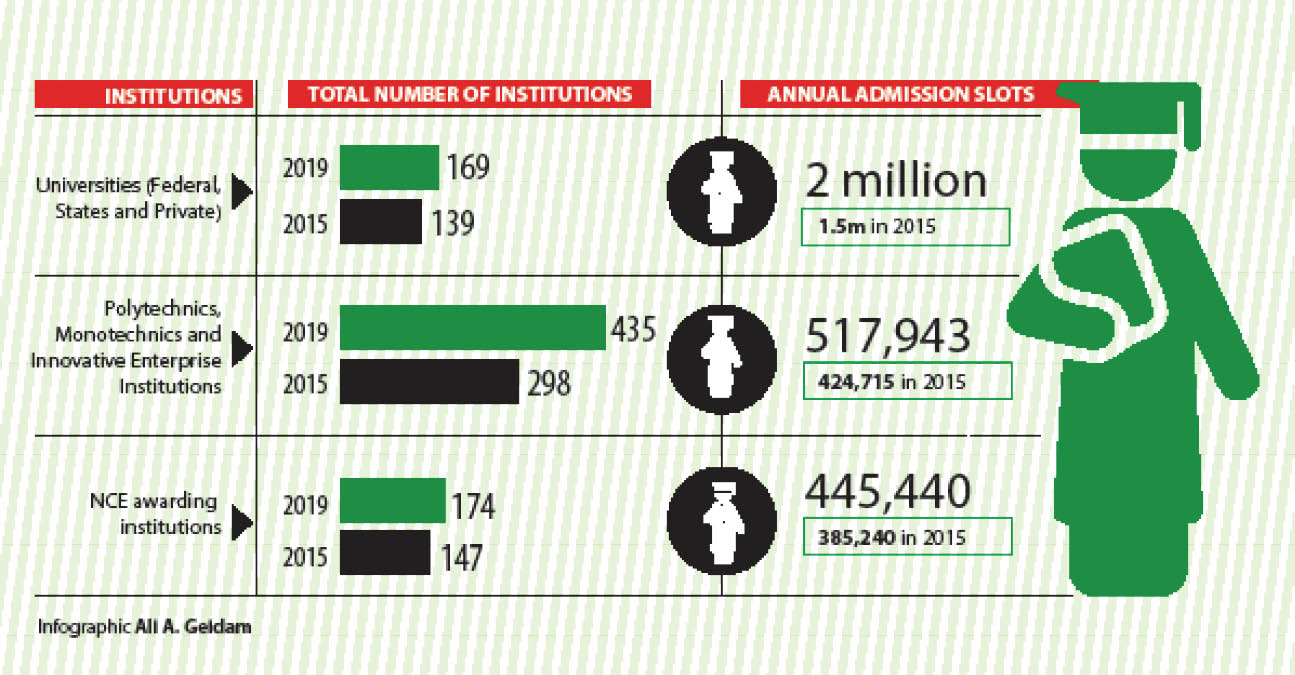Higher education now more accessible – Minister
Whereas the number of candidates applying to study in higher institutions increases every year, the number of undergraduate students each university, polytechnic and College of Education can carry also tends to grow, the Minister of Education, Adamu Adamu, has said. This means that applicants no longer face barriers to accessing higher education posed by limited […]

Whereas the number of candidates applying to study in higher institutions increases every year, the number of undergraduate students each university, polytechnic and College of Education can carry also tends to grow, the Minister of Education, Adamu Adamu, has said.
This means that applicants no longer face barriers to accessing higher education posed by limited spaces as obtainable before.
Adamu said the government had between 2015 and 2019 established and licensed 30 additional universities which brought the total number of universities to 169: 43 federal, 47 state and 79 private, with a combined carrying capacity of over two million students as against the 1.5 million in 2015.
The number of polytechnics, monotechnics and innovative enterprise institutions, in 2015 was 298 with a combined carrying capacity of 424,715. In addition, 71 of such institutions were licensed during the period under review with a carrying capacity of 93,228. Again, 66 new institutions were recently given operational licenses which brought the number to 137 thus; access was increased from 424,715 in 2015 to 517,943 slots in 2019.
The minister said there were 147 Nigeria Certificate in Education (NCE)-awarding institutions with a combined carrying capacity of 385,240, but that in the last four years, approval was granted to 27 new institutions with a combined carrying capacity of 60,200.
The total number of NCE-awarding institutions has been increased from 147 to 174 with a carrying capacity increased from 385,240 in 2015 to 445,440 in 2019.
More institutions, including about 200 universities, have reportedly applied for operational licenses from the regulatory agencies: the National Universities Commission (NUC), National Commission for Colleges of Education, (NCCE) and National Board for Technical Education (NBTE).
Meanwhile, the Joint Admissions and Matriculation Board (JAMB) has said examination fraud, which includes multiple registration, frustrates the effort of authorities in determining the actual number of those seeking admission into higher institutions and was consequently a challenge to policy formulation and data management.
JAMB Registrar, Prof. Is-haq Oloyede, said while a total of 1,886,508 candidates registered for the 2019 UTME, 1,826,839 candidates sat for the examination, and that 59,667 candidates could not be accounted for during the examination.
Also, many of the 1,792,719 candidates whose results were released may not meet admission guidelines set by the institutions.
